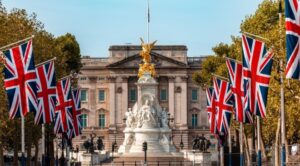Key Moments:
- Industry experts have advocated for a single regulatory agency to streamline casino oversight in South Korea.
- Current fragmented oversight is seen as an obstacle to long-term integrated resort development and effective tourism policy integration.
- Despite increased visitor numbers in 2024, South Korea’s tourism revenue has stabilized, underscoring the need for cohesive regulation.
Fragmented Regulation Hampers Growth
South Korea’s casino industry operates under a multi-agency regulatory structure, with responsibilities divided among several public bodies. Industry stakeholders have highlighted that establishing a centralized regulatory body would enable more effective integration of casino oversight within the nation’s broader tourism strategy.
At present, mainland casino licenses are issued by the Ministry of Culture, Sports and Tourism, but overall gaming regulation across the country is managed by the National Gambling Control Commission (NGCC). Jeju Island, having a degree of autonomy, licenses and oversees its eight foreigner-only casinos through its own local government processes.
Lee Jae-seok, associate professor of tourism management at Gangneung-Wonju National University, commented that this fragmented framework hinders the creation and execution of medium and long-term integrated resort planning. He stressed the need for consolidated regulation, warning that, without such change, South Korea risks losing ground to other markets in the region.
Frequent bureaucratic rotations within regulatory bodies, particularly at the Ministry of Culture, Sports, and Tourism, are reported to disrupt consistent policy enforcement, making regulatory continuity and effective administration challenging.
International Comparisons Highlight Gaps
Insights from markets such as Singapore and Japan draw attention to South Korea’s regulatory vulnerabilities. Singapore’s Gambling Regulatory Authority serves as the singular authority for its casino sector, while Japan has launched its own Casino Regulatory Commission ahead of the expected opening of its first integrated resort.
Both examples are cited to demonstrate the advantages of consolidating casino regulation to help achieve national tourism objectives.
Regulation as a Tool for Sustainable Tourism
An Ock Mo, president of the Association of Korea Gaming Tourism Professionals, emphasized that regulatory reform has the potential not only to prevent social harm but also to enhance the country’s appeal as a gaming destination and strengthen its global competitiveness. The association, established in 2023, focuses on sustainable industry expansion.
Despite a notable increase in the number of visitors so far in 2024, tourism incomes have plateaued, according to a report by Yanolja Research. This development points to the critical need for an integrated regulatory model to better capture the economic benefits of gaming tourism.
Proposal for an Integrated Casino Management Authority
Ms An from the Association of Korea Gaming Tourism Professionals has suggested forming an “integrated casino management authority” tasked with enhancing operator compliance, unifying regulations, and advancing transparency via detailed data disclosure.
Such a centralized model could streamline industry supervision, close existing oversight loopholes, and bolster protection for consumers in areas such as gambling harm prevention and dispute resolution.
Jeju Island’s Unique Regulatory Status
Jeju’s semi-autonomous governance structure adds complexity to the regulatory landscape. A government official noted that, while the Ministry of Culture, Sports and Tourism and the NGCC retain oversight powers, these are exercised only occasionally each year. The influence of the NGCC is limited by a lack of comprehensive industry experience among its officials.
This jurisdictional complexity exemplifies the difficulties faced in achieving regulatory unification and effective industry cooperation across the country.
| Region | Primary Regulator | Notes |
|---|---|---|
| Mainland South Korea | Ministry of Culture, Sports and Tourism / NGCC | Split responsibilities for licensing and overall regulation |
| Jeju Island | Local Jeju Government | Autonomous licensing and regulation for eight casinos |
| Singapore (for comparison) | Gambling Regulatory Authority | Sole competent authority for casino oversight |
| Japan (for comparison) | Casino Regulatory Commission | Central authority set up; first resort planned by end of decade |
- Author


